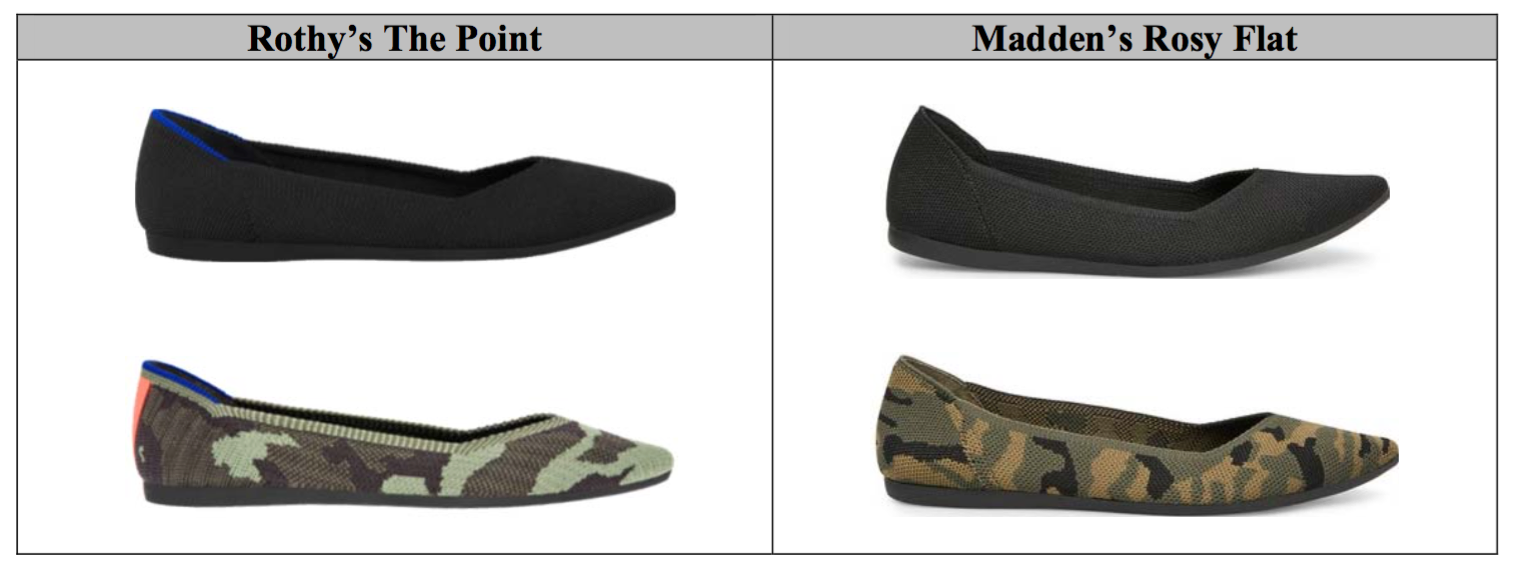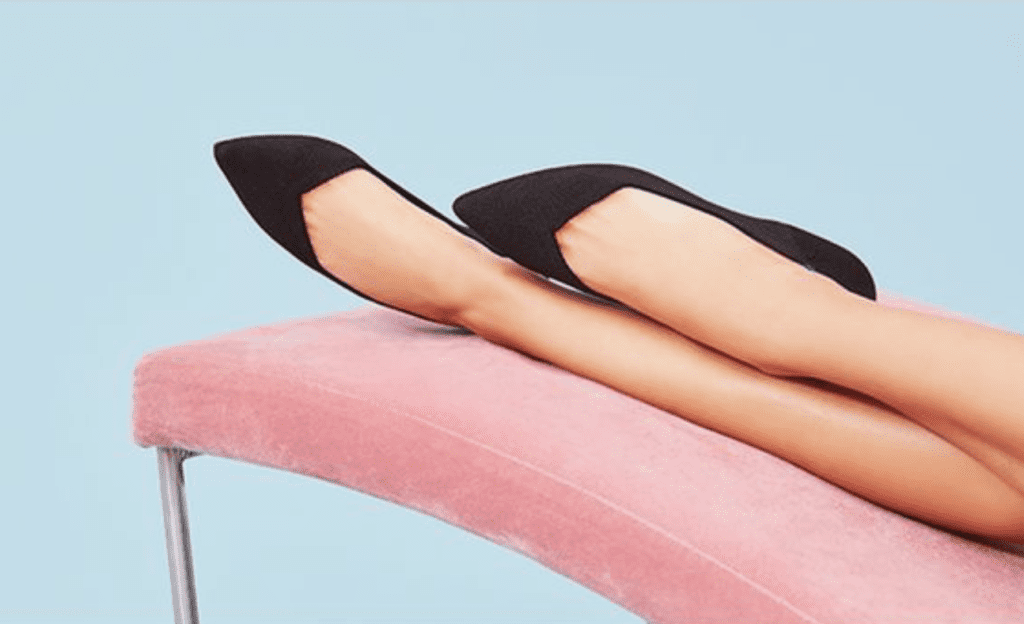The footwear fight between Steve Madden and Rothy’s is heating up. In a new filing in response to the lawsuit that New York-based Steve Madden filed in August after it received a cease and desist letter from the budding startup, San Francisco-based Rothy’s takes issue with Madden’s complaint, including its assertions that its Rosy Flats do not infringe Rothy’s patent-protected The Point flats nor do they infringing Rothy’s trade dress rights in the shoe design, as Madden argues, Rothy’s lacks valid trade dress rights to begin with.
In addition to asserting that the claims that Steve Madden’s lodged against it are barred due to a lack of subject matter jurisdiction by the court, as well as unclean hands on the part of Madden (a defense that centers on alleged bad faith actions taken by the plaintiff in connection with the subject of the complaint), Rothy’s alleges a handful of claims of its own in furtherance of an “action to stop yet another instance in Madden’s pattern of slavishly infringing intellectual property rights of its competitors.”
Setting forth claims of design patent and trade dress infringement, trademark dilution, and unfair competition, Rothy’s claims that “instead of pursuing independent product development, Madden has chosen to slavishly copy Rothy’s product design in violation of Rothy’s valuable intellectual property rights,” a claim that closely mirrors one that Nike recently made in its suit against Skechers.
To be exact, the 3-year old footwear brand – which sold more than 1 million of its signature ballet flats last year and which has found fans in Meghan Markle and other sustainable fashion followers – says that “in an effort to unlawfully leverage the valuable goodwill Rothy’s has developed through its innovation and significant investment, Madden blatantly copied the distinct, and protected style and appearance” of its popular The Point flats by way of the Steve Madden-branded Rosy Flats.
Not only do Madden’s copycat shoes run afoul of 3 separate design patents held by Rothy’s, the company asserts in its counter-complaint, the Rosy Flat infringes Rothy’s common law trade dress rights. A subset of trademark law, trade dress refers to “the total image of a product,” including “features such as size, shape, color or color combinations, texture, graphics,” etc., that, when taken together, serve to identify the source of the product to consumers in much the same way as a brand name or logo does.
The design elements that make up its The Point flats – namely, the “pointed toe flat; v-shaped vamp having three vertices; knitted upper; slim profile; and sleek outsole” – are “recognized by consumers of women’s footwear” as coming from Rothy’s, the brand claims, thereby, giving rise to valid trade dress rights, which Madden has infringed.

The overall similarity between the two companies’ flats is so “substantial” and striking,” Rothy’s argues, that “consumers seeing The Point and Rosy Flat products, either at point of purchase or thereafter, have been and will continue to be actually confused into thinking that the Rosy Flat product is related to Rothy’s,” thereby, enabling Madden to “gain profits by virtue of its sales of Rosy Flat products.” More than that, Rothy’s claims that “when worn, The Point and Rosy Flat are indistinguishable.”
With the foregoing in mind, Rothy’s has asked the court to dismiss Madden’s complaint, enter a judgment in its favor in connection with its own claims, and award it any “relief as [the[ court may deem just and proper.”
In order to prevail on its trade dress claim, Rothy’s will first have to establish that it does, in fact, have valid rights in its flat design, particularly since it does not have a federal registration to point to. This will include Rothy’s articulating what exact combinations and arrangements of elements constitute the trade dress (which it does in its complaint but also which is rarely a simple task, as Foley’s Jean-Paul Ciardullo states).
Beyond that, Rothy’s will need to establish that such elements, taken together, enjoy secondary meaning in the marketplace, or in other words, that consumers link that specific configuration of elements to a single source. This can be achieved by way of a showing of advertising expenditures, sales success, length and exclusivity of use, unsolicited media coverage, and consumer studies (linking the trademark to the source). From there, Rothy’s can assert that Madden has infringed those rights, an inquiry that will center on consumer confusion, just as in a case of traditional trademark infringement.
When it comes to determining design patent infringement, the “ordinary observer” test looks for substantial similarity between the two designs (the Rosy Flats and The Point flats, here), as taken from the viewpoint of an ordinary observer familiar with the prior art (i.e., similar designs that predate the patent-protected product).
In filing suit against Madden, Rothy’s states that it is following in the footsteps of “many intellectual property holders that have initiated infringement claims against the brand, “including at least six lawsuits concerning Madden’s copying of its competitors footwear since 2015,” citing lawsuits filed by Aquazzura, Skechers, Dr. Martens’ parent company Airwair, and Allbirds. (In that same time period, Madden has also been embroiled in infringement lawsuits with Cult Gaia over the brand’s Ark bag, Yves Saint Laurent in a since-settled suit, and Alice + Olivia, among others).
*The case is Steven Madden LTD. v. Rothy’s, Inc., 1:19-CV-01509 (D. Del.).











